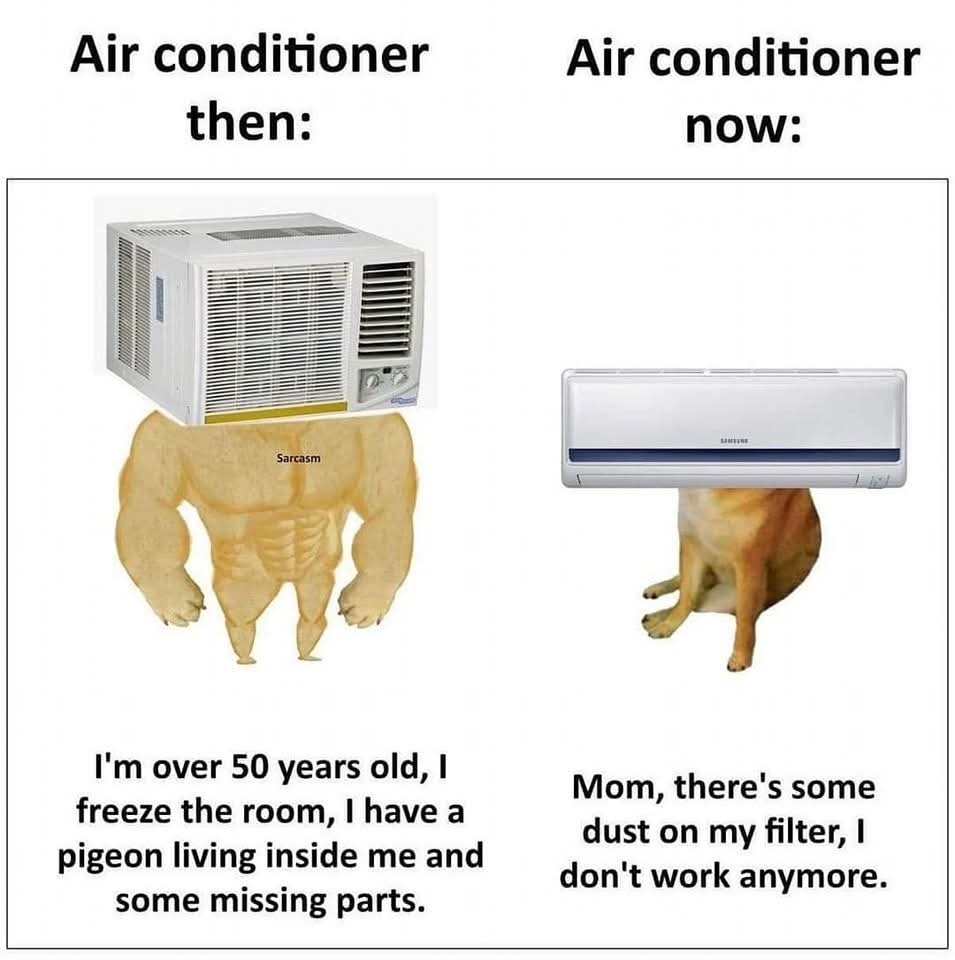this post was submitted on 16 Jan 2025
515 points (95.9% liked)
Funny
7819 readers
422 users here now
General rules:
- Be kind.
- All posts must make an attempt to be funny.
- Obey the general sh.itjust.works instance rules.
- No politics or political figures. There are plenty of other politics communities to choose from.
- Don't post anything grotesque or potentially illegal. Examples include pornography, gore, animal cruelty, inappropriate jokes involving kids, etc.
Exceptions may be made at the discretion of the mods.
founded 2 years ago
MODERATORS
you are viewing a single comment's thread
view the rest of the comments
view the rest of the comments

Reliability tends to be in opposition to efficiency for mechanical stuff. Yeah, it sucks more energy which is bad, but if you use 50% less stuff for an efficient unit but end up replacing it 4 times while the old one still runs you end up using more materials.
We need a happy medium between as efficient as possible but only last for a few years and reliable but very inefficient.
Cost is the third point of the triangle. You can get good efficiency and reliability if it costs more.
That might be true for materials but a large percentage of those can likely be reused while energy inefficiency is a much larger problem.
The flip side is we don't think about the old ACs that destroyed themselves inside the expected lifetime, we only see the freaks that blast on regardless of damage and just never deteriorate. If the old ones all lasted 50+ years, we wouldn't see people needing to buy new ones.
It's still probably the case that older devices without plastic control boards lasted longer, but it's worth remembering that we only see the edge cases.
Also, some of the old appliances will keep trying to function even when they've degraded to the point of being nearly inoperable, where the new device will be able to detect that it's not working right and shutdown, probably before it's not worth it to run anymore, but probably in time to be reparable.